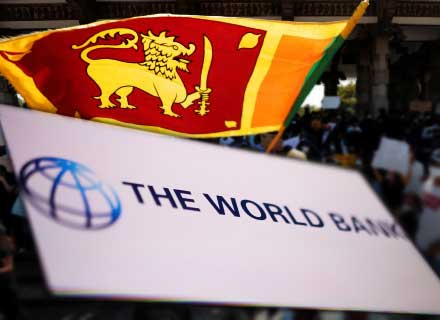The World Bank Group has unveiled a landmark initiative to support job creation and accelerate private sector growth in Sri Lanka, pledging more than US$1 billion in financing over the next three years. The funding will target sectors with strong potential for employment and investment—namely energy, agriculture, tourism, and regional development—with the goal of expanding economic opportunity, strengthening local industries, and attracting private capital to drive long-term growth.
The announcement followed a meeting in Colombo between President Anura Kumara Dissanayake and World Bank Group President Ajay Banga, marking the first visit by a World Bank President to Sri Lanka in over two decades. The visit signals a renewed commitment to the country’s economic recovery and future development.
President Dissanayake emphasized that the support represents a significant investment in the Sri Lankan people, adding, “It will help create jobs, support small businesses, and open up new opportunities across the country. We are committed to ensuring this partnership delivers real change for our communities.”
World Bank President Ajay Banga highlighted that Sri Lanka is at a pivotal moment to build on recent economic stabilization efforts. “With progress underway to stabilize the economy and restart growth, core elements for job creation are in place. Now is the time to accelerate reforms and create the conditions for private enterprise to thrive—particularly in sectors that can create jobs at scale,” he stated.
According to the World Bank, nearly one million young people are expected to enter Sri Lanka’s workforce over the next decade, while only about 300,000 jobs are projected to be created under current conditions. The new financing aims to close this gap by mobilizing both public and private investments in high-impact sectors.
The immediate funding allocations include US$185 million for energy, targeting the development of solar and wind projects with one gigawatt of capacity and mobilizing over US$800 million in private investment. Agriculture will receive US$100 million to help farmers adopt new technologies and reach markets, benefiting more than 380,000 people. Tourism development will be supported by US$200 million to protect cultural and natural heritage while expanding employment. Another US$200 million will be directed toward regional development, with a focus on infrastructure and job creation in the Northern and Eastern Provinces.
The World Bank’s integrated approach, combining financing, knowledge-sharing, and private sector tools, underscores its ability to support comprehensive economic growth and job generation. With current investments in Sri Lanka exceeding US$2.2 billion, this new package deepens a seven-decade partnership aimed at fostering a more resilient and inclusive economy.
